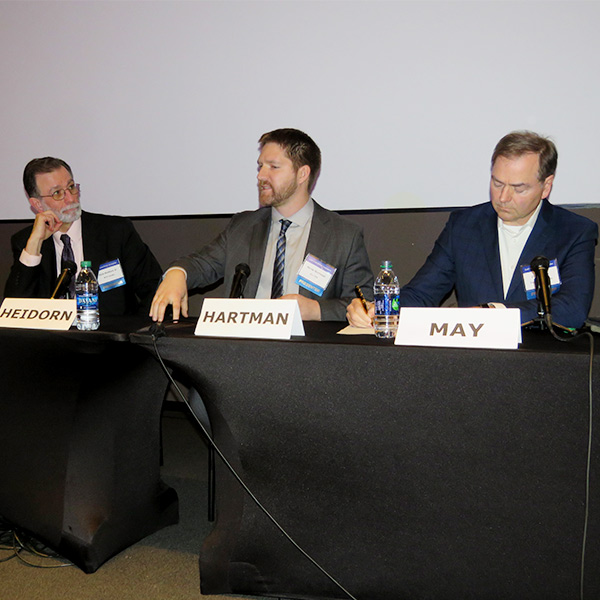By Christen Smith
Transmission owners told PJM last week that its rules for supplemental projects satisfy the RTO’s obligation as a regional planner, despite protests from dissatisfied load interests.
Executives from a dozen TOs sent a letter to the Board of Managers on Thursday applauding the way staff addressed stakeholder concerns while implementing revisions to Manual 14B: PJM Region Transmission Planning.
The TOs said the current manual language reflects months of compromise by stakeholders and demonstrates PJM’s willingness to increase transparency at every stage of the Attachment M-3 process approved by FERC.
“This has resulted in a process that harmonizes the presentment of baseline and supplemental projects such that there is minimal difference between the two presentments beyond the PJM board’s approval of baseline projects,” the letter reads.
At January’s Markets and Reliability Committee meeting, PJM rejected two paragraphs in a set of revisions that stakeholders approved for inclusion in Manual 14B. (See PJM Rebuffs Stakeholders on Supplemental Projects.)
The paragraphs came from an American Municipal Power proposal — designed to address load interests’ concerns — that said supplemental projects “should be based on written articulable criteria, models and guidelines that are measurable and, to the extent available, quantifiable (e.g., asset replacement prioritization) so stakeholders can replicate TO planning decisions and validate their proposed solutions.” AMP cited the transparency principles in FERC Order 890, saying TOs should disclose asset-specific condition assessments and the criteria and models supporting supplemental projects.
PJM staff opted against incorporating the revisions, saying the disputed text is an “overreach” of the RTO’s Regional Transmission Expansion Plan, which is limited to studies of load flows, short circuits and stability.
The TOs backed the RTO’s stance, saying “PJM correctly determined that certain suggested changes went beyond and/or were not consistent with the FERC orders, and that stakeholders were advancing positions through manual changes that FERC had already rejected.
“What must be considered is that PJM and the PJM TOs have the ultimate responsibility for ‘keeping the lights on,’” the letter concludes. “This consideration must be weighed when planning processes are modified.”
Load interests struck an entirely different tone in their Feb. 8 Load Interests Blast PJM for Inadequate Transparency.)
In a separate letter to the board Feb. 11, the American Public Power Association and the Transmission Access Policy Study Group said the RTO’s refusal to incorporate AMP’s language lacks “compelling justification.”




